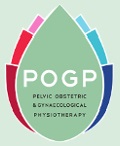 How do you find a good women’s health physiotherapist? It’s hard, given how reluctant women are to discuss their bladder problems. In practice women are unlikely to make personal recommendations telling people they’ve seen a good private women’s health physiotherapist who’s stopped them leaking. That’s because, unfortunately, there’s still a lot of stigma associated with incontinence. Some women feel too embarrassed too talk about it. Others feel ashamed: they may see it as a sign of personal failure and blame themselves. But they shouldn’t. It’s not their fault – it’s just a common condition that affects one in three women: a condition that women’s health physiotherapy can help resolve.
How do you find a good women’s health physiotherapist? It’s hard, given how reluctant women are to discuss their bladder problems. In practice women are unlikely to make personal recommendations telling people they’ve seen a good private women’s health physiotherapist who’s stopped them leaking. That’s because, unfortunately, there’s still a lot of stigma associated with incontinence. Some women feel too embarrassed too talk about it. Others feel ashamed: they may see it as a sign of personal failure and blame themselves. But they shouldn’t. It’s not their fault – it’s just a common condition that affects one in three women: a condition that women’s health physiotherapy can help resolve.
Recently it came to my attention that someone had copied the testimonials from my website onto their website (including my pink lady logos), substituted their name for mine and passed my testimonials off as their own! Apart from utter disbelief, it also made me think: how do you find a good women’s health physiotherapist if you’re searching on the internet? This is what I would advise.
Make sure they’re registered with the relevant national bodies. In the UK that’s :
- the Health Professions Council (HPC)
Check membership of relevant groups or societies to demonstrate continuing interest and professional development in their field. For example,
- the Chartered Society of Physiotherapy (CSP)
- the Association of Chartered Physiotherapists in Women’s Health (ACPWH)
- Chartered Physiotherapists Promoting Continence (CPPC)
If they don’t work in the NHS as a women’s health physiotherapist or as part of a continence service, check that they have actually specialised in women’s health physiotherapy. Look for:
- post-graduate training or qualifications in women’s health physiotherapy
- experience. Contact them and ask them how long have they been specifically treating patients with gynaecology, urology and/or pregnancy-related problems?
- Check that they are trained and qualified to perform a vaginal examination (even if you don’t want one!).
Read their client/patient testimonials or recommendations and consider if they seem genuine. Look for anything odd about the testimonials. For example, are they presented in the same style as the rest of the site – even if that means checking the layout or logos used.
If you’re really stuck, in the UK you can always contact ACPWH, who can recommend women’s health physiotherapists treating patients locally.
For the record, all my client testimonials are genuine. They were written to me personally by satisfied clients to thank me for my treatment, or they were comments made by clients and/or patients who are happy for me to repeat them. My pink lady logos were specially designed for me and are not authorised for use on any other website. If you happen to see my testimonials or my pink lady logo on any other website, do please let me know!



